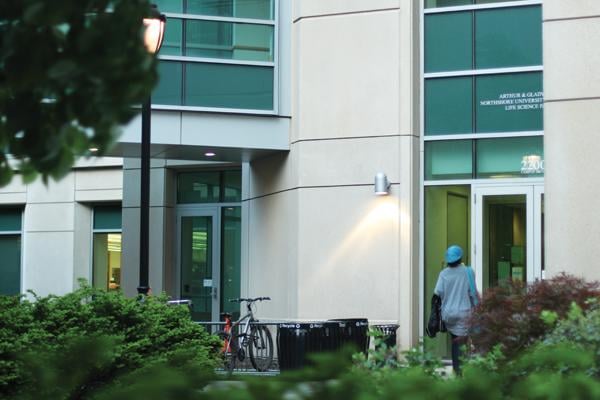
Top administrators are taking a closer look at Northwestern’s policies regarding lab access after McCormick sophomore Dmitri Teplov committed suicide earlier this month in Pancoe Hall.
Teplov killed himself using lab equipment after entering Pancoe through Cook Hall using an NU key, according to an Evanston police report obtained by The Daily through the Freedom of Information Act. Teplov did not need anything other than the key to access the lab in which he was found dead.
Teplov worked in a lab in the building, but Weinberg Prof. Ramakrishna Sesha Shankar told Teplov’s mother that her son had not been in the lab since January or February, according to the report.
In an interview with The Daily on May 22, University President Morton Schapiro said lab access was brought up at a recent meeting with NU’s vice presidents.
“The incident brought to light concerns about how access to our laboratories is currently governed, and is there a need to further review that?” University spokesman Al Cubbage said.
Teplov’s death spurred the University to take a closer look at the “decentralized” system, said Jay Walsh, vice president for research. He explained that current policy surrounding lab access is largely controlled by faculty members and differs within individual schools and departments. He said he is currently waiting for a report on lab access from the Office for Research Safety, which is coordinating with Facilities Management, he said.
“It’s a topic of discussion,” Walsh said. “It’s premature to say anything more than that.”
Iwona Spath, ORS biological safety specialist, said students apply for keys to labs. The application includes contact information, a student ID number, emergency contact information and a permission signature from a principal investigator. The PI, the lead scientist on a research project, is ultimately responsible for determining who has key access to a particular lab, Spath said.
“Having access is not an easy thing, especially after hours,” Spath said.
Markus Schaufele, ORS Evanston director, said sometimes in large labs, the PI delegates that responsibility to another senior lab worker, such as a lab manager. He said emerging technologies, such as the types of keys used to access labs, might allow for greater control over lab access. The lock shop that currently distributes keys is part of Facilities Management, he said.
Walsh said Teplov’s suicide has forced the University to look into both the specifics of his death and broader issues about access to spaces on campus. Cubbage said a review of such policies will require collaboration among ORS, Facilities Management and academic departments.
“While this particular case has forced us to focus on research labs, it has also allowed us an opportunity to think more broadly about safety on campus,” Walsh said. “That is a topic that has a breadth of ideas that go with it, and therefore, there’s an awful lot more people involved than just the Office for Research Safety.”
Marshall Cohen contributed reporting.



















